ESG and NGOs: In this current age, companies are evaluated on more than just profits and market performance; companies are increasingly evaluated on how responsibly they operate. Do they adequately care for the environment? Do they treat workers fairly? Are their leaders ethical and transparent? These are some of the facets of the global framework of Environmental, Social, and Governance (ESG).
While companies are pledging to be green, or socially responsible, NGOs are and will continue to play an essential role in this engagement as guides, challengers, and partners. NGOs in India now function as more than just watchdogs and charitable organizations; they are becoming increasingly powerful instruments shaping the future cultural context in which companies reflect on their behavior in society. This essay discuss how NGOs are shaping ESG standards and why this collaboration is paramount.
Also Read: Role of IMF in Indian Economy
Table of Contents
Understanding ESG: A New Corporate Compass
Environmental, Social, and Governance (ESG) criteria are a means for evaluating companies in a way that goes beyond financial performance:
- Environmental (E): What are the impacts of the company on the planet? This includes pollution, carbon emissions, waste, and climate activities.
- Social (S): How does the company deal with people? This includes employee treatment, diversity issues, community service, and human rights obligations.
- Governance (G): How well is the company run? This includes transparency, ethical leadership, anti-corruption, and board issues.
Also Read: NGO Challenges Constitutional Validity of Waqf Bill
ESG has exploited the actions of investors, consumers, and regulators who want assurance that a company is sustainable in the long term. This is where NGOs come in, not just to criticize bad practices, but to work with people in developing better systems.
NGOs as Ethical Guardians: Holding Companies Accountable
A primary role for NGOs is to act as a watchdog. Their in-depth research, connections with communities of interest and independence from corporate interests give them a legitimate authority to act as a watchdog, and they are often early adopters to notice red flags.
For example:
- Greenpeace is publically calling out and campaigning against the oil and plastic companies for their environmental violations
- Oxfam is exposing exploitative conditions to workers in the supply chain.
- Human Rights Watch is exposing abuses across industries from apparel to mining.
These reports and public campaigns enhance awareness and pressure on companies to adopt better ESG practices, align with global expectations, and avoid reputational damage.
Also Read: Role of NGOs in Slum Development
NGOs as Strategic Partners: Collaborating for Good
Criticism isn’t the only way for non-governmental organizations (NGOs) to leverage their influence. Many nonprofits also work with some of the most untrustworthy organizations in the business world, the private sector with the intent of amelioration. They have a trusted position built on the basis of knowledge about local issues, communities, and sustainability challenges. These attributes make these organizations prime candidates for collaborations as it relates to responsible engagement with different issues.
- WWF and Coca-Cola collaborated on their sustainable commitment to freshwater and water reduction.
- Fair Labor Association and Adidas worked together to provide an appropriate labor regime and factory conditions.
- Rainforest Alliance and Unilever collaborated to develop sustainable sourcing strategies in tea and palm oil.
These examples demonstrate that when businesses partner with NGOs to work in collaboration, neither side benefits solely; instead, both sides are enhanced, resulting in a tangible difference in their approaches.
Also Read: Empowering Women-Led NGOs: The Rise of Female Changemakers
NGOs as Innovators: Bringing Grassroots Insight to ESG
NGOs often operate at the grassroots level, tackling issues impacting real people and communities. As a result, they may have some knowledge and insight that corporations cannot even imagine in their top-down approach. For example:
- An education NGO could advise a tech company on how to develop base-learning programs in rural areas.
- An environmental NGO could work with a city and a packaging company to co-design a waste recycling program.
By marrying corporate assets with NGO expertise, companies can bolster their ESG action by making it more grounded, inclusive, and effective.
NGOs Promoting Social Justice and Inclusion
ESG is not only about emissions and trees. It’s also about social impact: equality, diversity, and community care. NGOs have an important role to play in helping corporates understand and improve in these sectors.
For example:
- NGOs focused on gender equality support corporates in establishing better hiring practices and workplace policies.
- Mental health NGOs help develop employee wellness programs.
- NGOs that work with marginalized communities lend insight into ensuring that corporate projects are not inadvertently harmful to marginalized populations and are inclusive.
This is how NGOs help corporates become more human-centric and socially responsible.
Also Read: Role of NGOs in Dalit Upliftment
NGOs Driving Transparency and Accountability
Sustainability reports, ESG disclosures, and corporate social responsibility declarations are proliferating. But how do we know they are not just fictitious claims?
NGOs are critical to the transparency of these claims:
- They conduct third-party audits and evaluations.
- They publish independent impact assessments of potential outcomes.
- They hold corporations accountable for their ESG claims by requesting data and demonstrating real impact.
For example, the Carbon Disclosure Project (CDP) works with thousands of companies to report their environmental impacts and track their disclosure progress. NGOs like this prevent ESG from being just a public relations campaign, but a commitment to taking action.
Also Read: Role of NGOs in Influencing Government Policies
Influencing Policy and Business Standards
Many NGOs also influence national and global legislation that influences corporate behaviour. They often engage in shaping:
- ESG reporting standards
- Corporate governance frameworks
- Climate and labour laws
For example, in India, a number of NGOs mobilized to pass the mandatory Corporate Social Responsibility (CSR) law that requires large companies to spend 2% of their profits on social areas.
Likewise, global NGOs collaborate on the UN Sustainable Development Goals (SDGs) and impact how businesses align with the SDGs. They make sure that corporate accountability is not something companies can choose to do. Corporate accountability is part of law and global policy.
Also Read: Role of NGOs in Cancer Care
Case Studies: Real-Life Impact of NGO-Driven ESG
Case 1: Fashion Industry Reform
After the 2013 collapse of Rana Plaza in Bangladesh that killed over 1000 garment workers, non-governmental organizations (NGOs) across the globe began pushing for change. All of their activism resulted in:
- International brands doing the Accord on Fire and Building Safety
- Transparency related to the locations of factories
- Better working conditions
The Rana Plaza tragedy created one of the largest and fastest transformations of ESG practices in the fashion industry, largely because of how fast the NGOs acted and how they sustained their level of advocacy.
Case 2: Renewable Energy Push
Organizations such as The Sierra Club and 350.org have conducted powerful campaigns to persuade the public and adamantly push for clean energy. Their campaigns were not just talking about and protesting fossil fuel use. These NGOs:
Also Read: Role of NGO in Women’s Rights in India
- Engaged with the public through educational means
- Engaged with companies and government entities to apply pressure
- Fostered a transition for communities moving to cleaner energy.
Because of their tenacity and advocacy, many more corporations are now putting net-zero goals forward and investing in renewables. Corporations are making a transition not only because they want to make a profit, but more so because the expectations from stakeholders have been built by NGO activism.
Challenges NGOs Face in ESG Influence
NGOs also face challenges in their influence which include the following:
- NGOs can have fewer resources relative to bigger corporations.
- Even as NGOs, there are political pressures against upsetting potential funders or strong interests.
NGOs risk being seen as untrustworthy if they work too closely with businesses. For NGOs to be ‘useful’, they must keep communities involved with their work, keep equitable and independent, not just from funders, but from perceptions created by the fast-changing corporate landscape.
Also Read: Role of NGOs in Economic Development
Why This Relationship Matters for the Future
In a world facing climate crises, social injustice, and rising inequality, the partnership between NGOs and businesses is more important than ever. Corporates alone may lack the ethical compass or community insight to address these issues. NGOs may lack the scale or funding.
Together, they form a balanced alliance—driven by values, powered by resources. This synergy can lead to:
- Sustainable economic growth
- Better environmental protection
- More equitable societies
For students, consumers, professionals, and policymakers, supporting NGO-led ESG efforts means supporting a better future.
Conclusion: Towards a Shared Vision of Sustainability
The ESG movement is changing how companies function and NGOs are the ones driving this change outside of the capital rich spotlight. NGOs help companies in their sustainable, transparent and accountable journey whether it’s highlighting bad behavior, providing evidence based opinion, working on joint projects or policy initiatives.
Also Read: Role of NGOs in Cyber Crime Against Women
This kind of influence ensures that ESG is not box ticking, it is a serious commitment to people, planet and principles.
At a time when the world requires more responsible leadership, NGOs provide the voice of conscience, creativity and change.
There is no way forward without this collaborative effort for a future that works not just for shareholders, but for everyone.

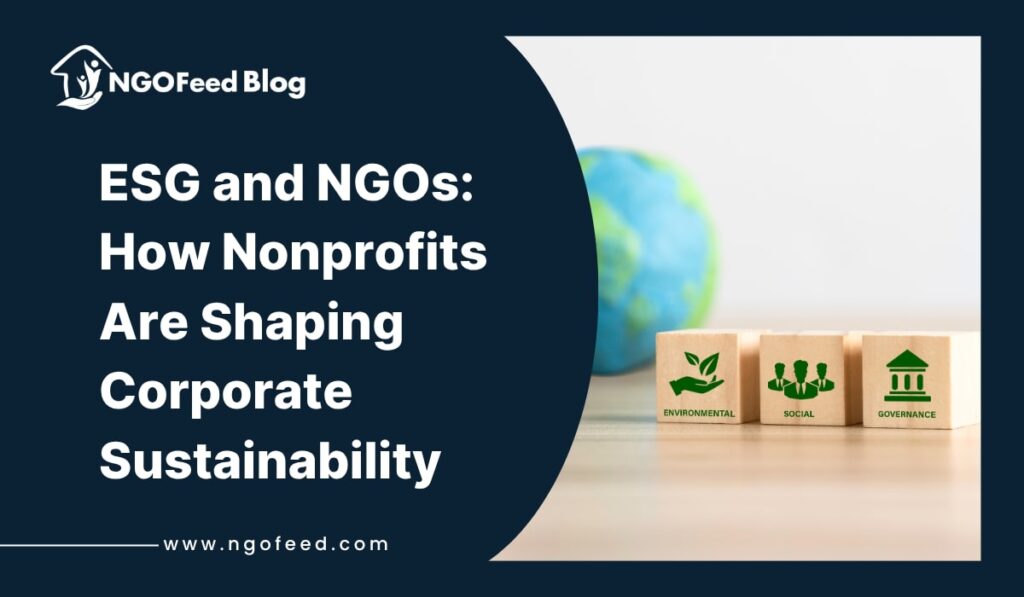
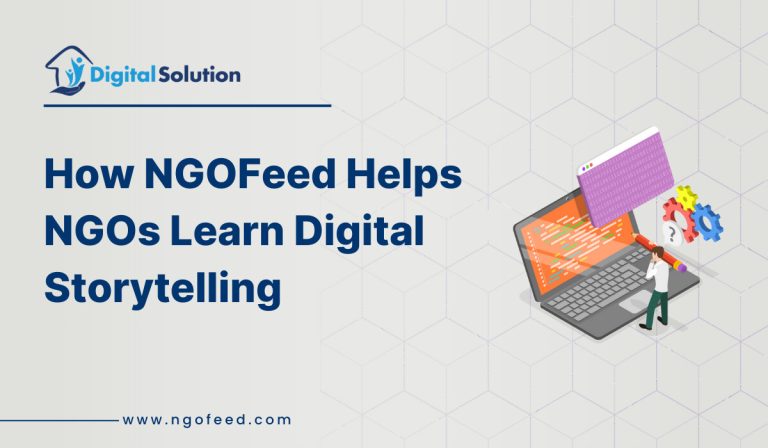
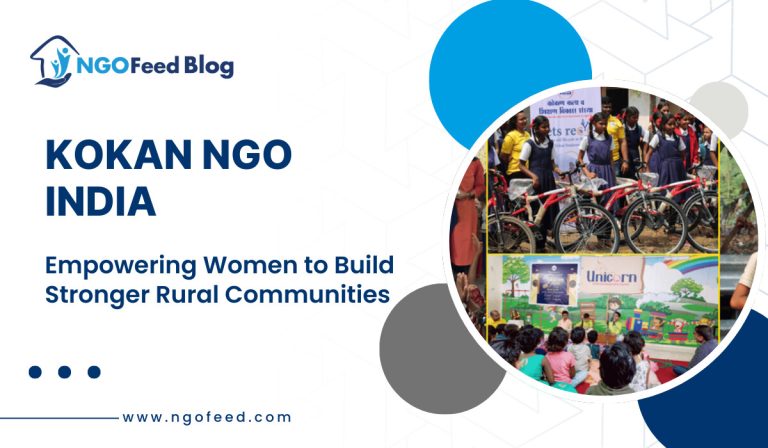
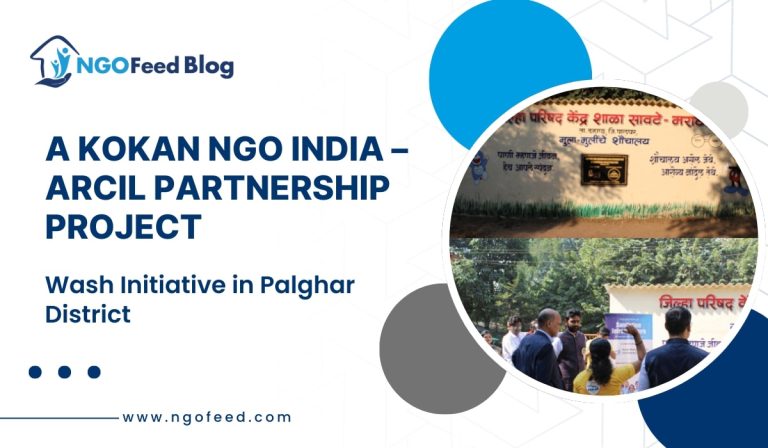
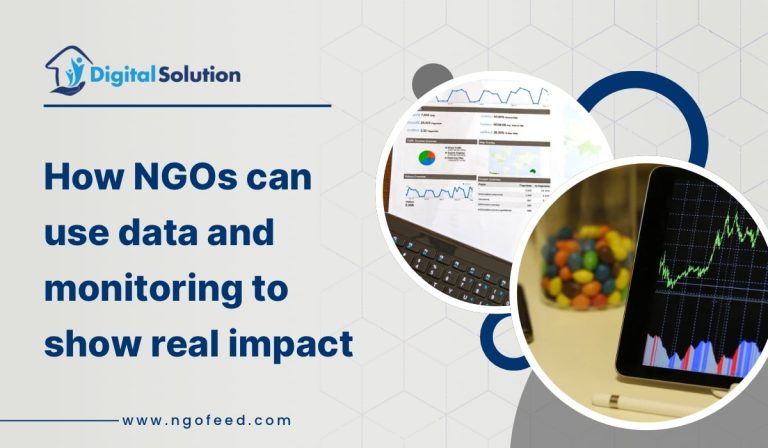
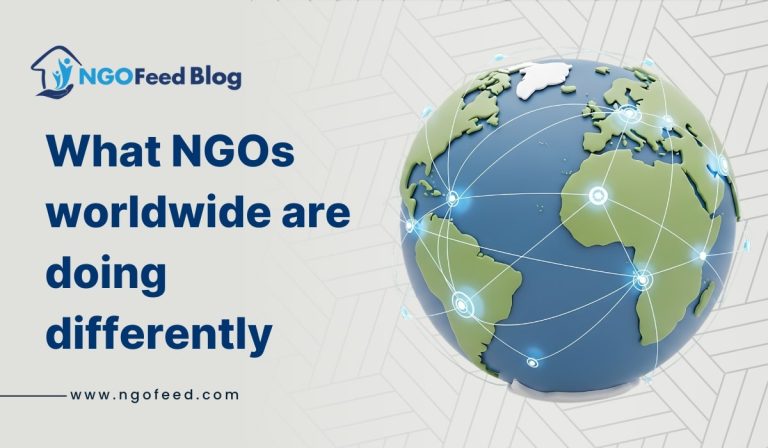
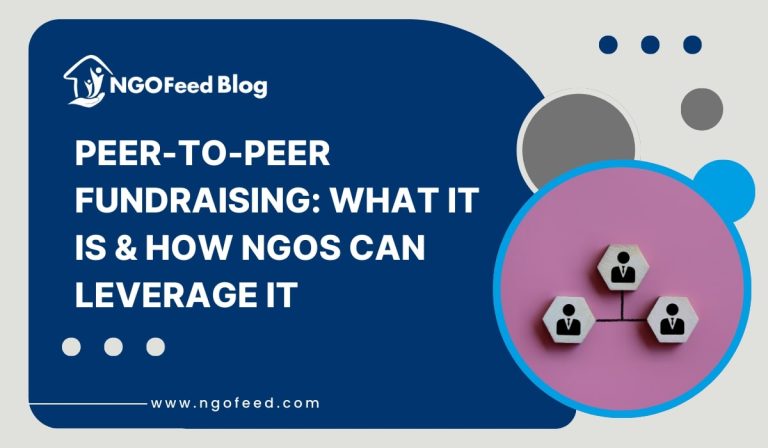
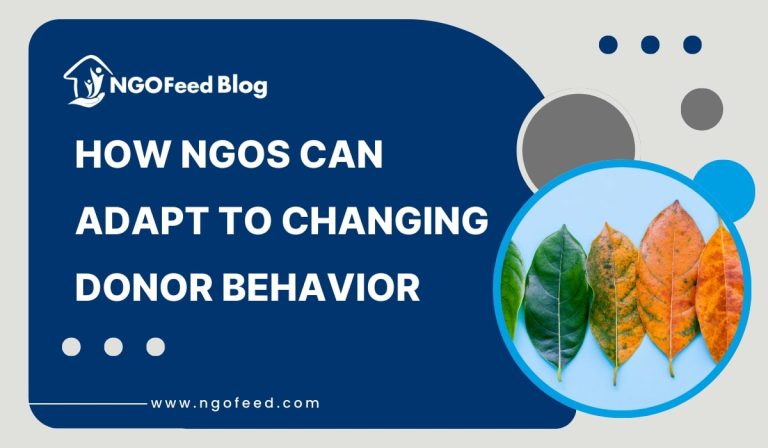
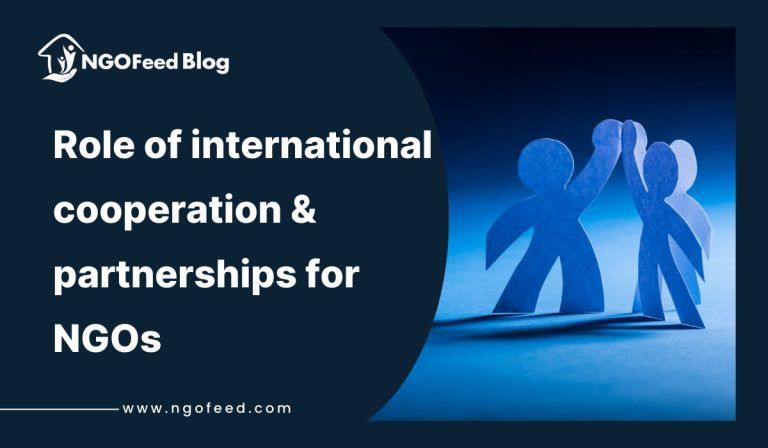
I ready to ngo partner